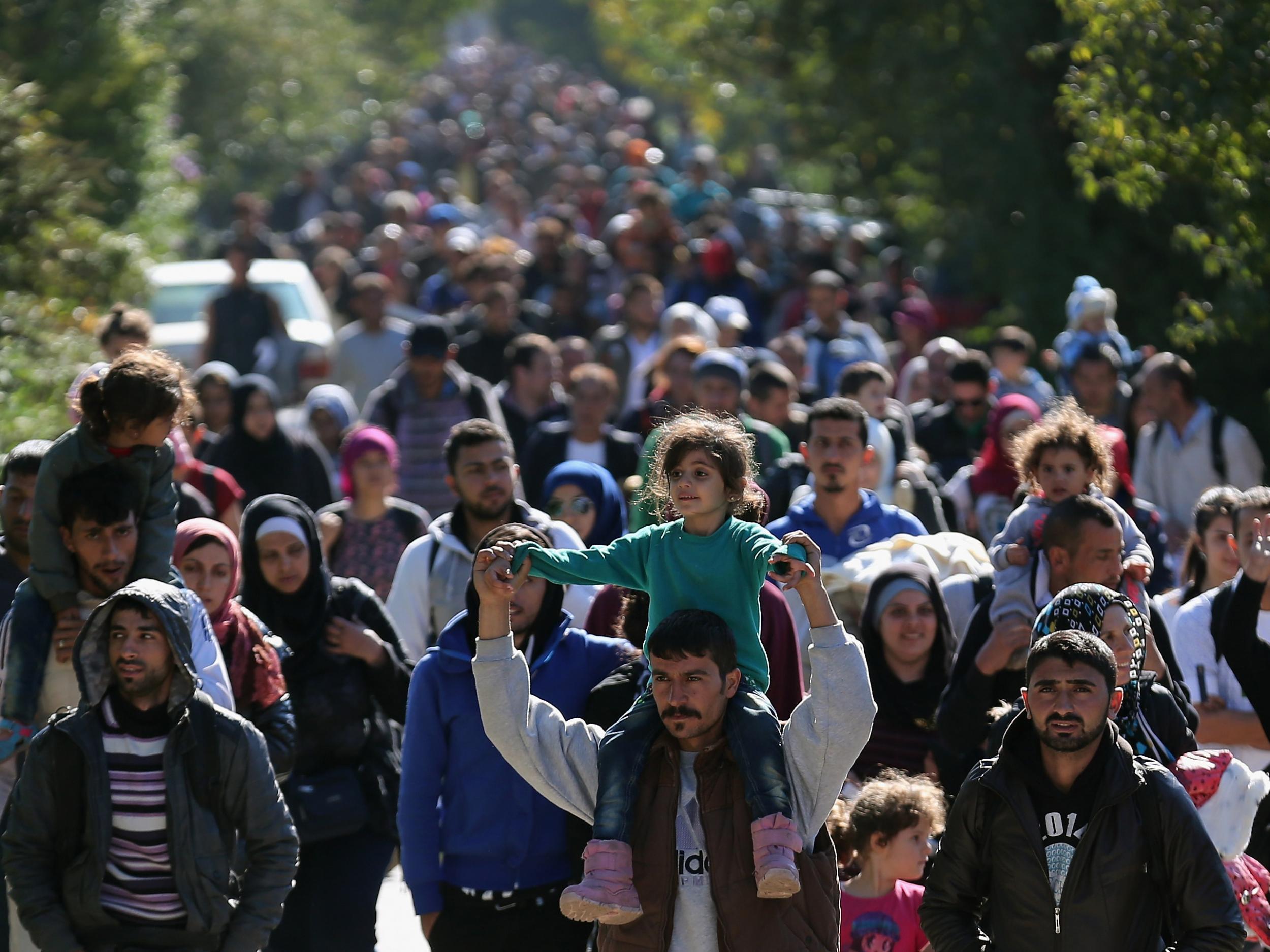Refugees could be resettled using computer algorithm that doubles chances of finding them employment
It is thought the technique using data from each individual arriving in a country could help asylum seekers integrate more effectively

Successful resettlement of refugees could be achieved by inputting data into a computer, according to a new study.
Scientists from the US and Europe have developed an algorithm that can use take an individual’s data and work out where it would be best for them to live.
Based on provisional analysis using tens of thousands of historical cases, the researchers concluded the likelihood of an individual refugee finding employment could be roughly doubled by implementing the technique.
The influx of refugees into Europe since 2015 has highlighted the need for efficient systems to resettle people in their new countries of residence.
Studies suggest the place a refugee ends up influences how successful they are, and yet this tends not to be taken into account when finding them homes.
In the US, for example, asylum seekers are sent to whichever location has space for them at the time of arrival, while in Switzerland they are randomly allocated across regions.
Neither method is ideal, as they do not take into consideration the myriad factors that affect an individual’s suitability for their new location, such as age and linguistic abilitiies.
“Algorithmic assignment holds the potential to simultaneously improve outcomes for refugees and the communities in which they are resettled,” said Dr Jeremy Ferwerda, a political scientist at Dartmouth College who co-authored the study outlining the algorithm’s results.

The algorithm takes into account factors like language proficiency, age and pre-existing immigrant community in resettlement locations.
Results from a trial of the algorithm using historical data were published in the journal Science.
“Our goal was to develop a tool that not only worked well but was also practical from a real-world implementation standpoint,” said co-author and data scientist Kirk Bansak of Stanford University.
“By improving an existing process using existing data, our algorithm avoids the financial and administrative hurdles that can often impede other policy innovations.”
The researchers used data from 30,000 refugees that have already been resettled, and used the algorithm to assign them optimal locations.
Compared to actual historical outcomes, they estimated that the employment probability of a refugee being placed in the US increased from roughly 25 to 50 per cent.
While methods of assisting integration, such as language classes and job training, are normally expensive and difficult to implement, the researchers noted that algorithmic assessment would cost virtually nothing.
Join our commenting forum
Join thought-provoking conversations, follow other Independent readers and see their replies
Comments
Bookmark popover
Removed from bookmarks